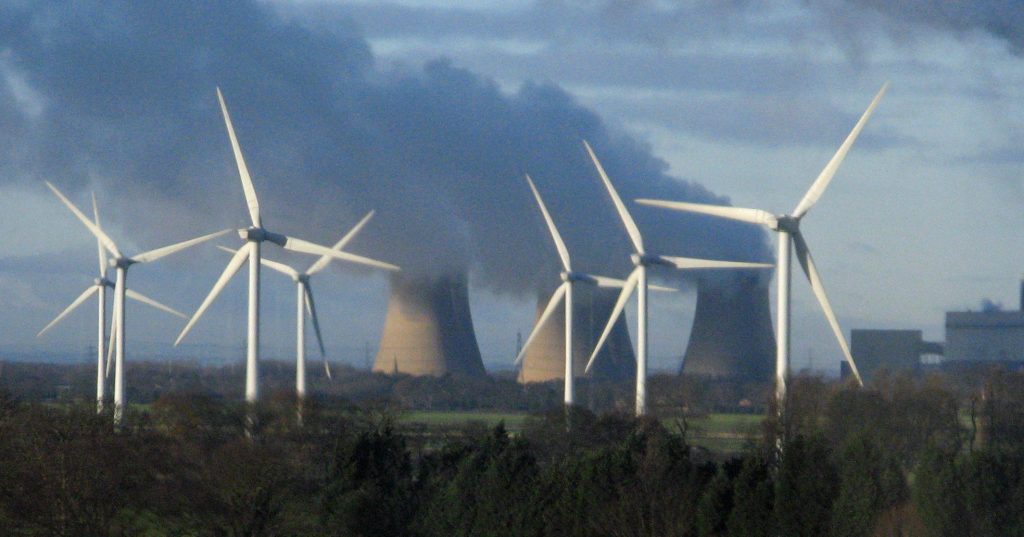1st February 2007, Brussels – In light of tomorrow’s release of the latest, starkest findings on climate change, Friends of the Earth Europe has called for the EU to swap grand words with serious action to face up to the crisis. Next month, EU leaders must – at their annual Summit – set ambitious targets for reducing greenhouse gas emissions and increasing renewable energy use.
The United Nations Intergovernmental Panel on Climate Change begins a series of releases of the long anticipated Fourth Assessment Report in Paris on 2 February 2007 [1], which is set to provide the most credible evidence yet of the human link to climate change and its devastating impacts. The report, which has taken six years to compile, draws on research by 2,500 scientists from over 130 countries.
Jan Kowalzig, Climate and energy campaigner at Friends of the Earth Europe said:
“The IPCC report scientifically confirms the extent of this man-made crisis already hitting people across the world, and makes bleak predictions for the future – more intense storms, droughts and rising sea levels. We can no longer afford to ignore growing and compelling warnings from the world’s leading experts.”
EU leaders will agree in March on an Energy Action Plan for Europe. This, insists Friends of the Earth Europe, is a key opportunity to take decisive action to curb climate-damaging greenhouse gas emissions, which result from too much and too inefficient use of fossil fuels like coal, oil and gas.
“At their annual summit in March, EU leaders must go for a 30% emissions reduction target, which would be just enough to avert the worst of climate change. The current unilateral proposal of cutting 20% by 2020 compared to 1990 levels simply won’t keep global temperature increase below the all-important 2 degrees Celsius. And, let’s face it, if the EU doesn’t aim high on cutting emissions, who else will?” Mr Kowalzig said. [2]
Next month, the EU will also adopt a target for the share of its primary energy needs to be met by renewable energy by 2020. This is the chance to stimulate investment and technological advancement in renewables. But Friends of the Earth Europe warns that this target should also be tougher, and that one broad target will not be enough to guarantee investment security across a range of varied sectors like electricity or heating and cooling. [3]
“A fundamental shift to renewable energy from fossil fuels is vital to rescue our climate. Clean, safe and economically viable, renewables are a wise investment – but as it is a young market, governments need to secure confidence in all sub-sectors by setting them each a specific long term target.” Mr Kowalzig added.
***
NOTES :
[1] http://www.ipcc.ch [2] Analysis in the Energy Package concludes that the industrialised countries of the world should reduce their overall greenhouse gas emissions by 30 percent by 2020, compared to 1990 levels. Yet, the European Commission suggests that, unilaterally, the EU should for now only adopt a target of 20 percent for itself. An EU unilateral target of only 20 percent would not be enough to guarantee the EU’s own objective to keep global temperature increase below 2 degrees Celsius, and would indicate to the rest of the world that the EU is barely serious about tackling the climate crisis.Recent science suggests that concentration levels of carbon dioxide must peak below 500 ppm (parts per million) and then return below 400ppm. In contrast, a concentration of 450ppm has a 50 percent chance of exceeding the 2 degrees Celsius threshold. See also Meeting the EU 2 degrees Celsius climate target: global and regional emission implications; Michel den Elzen and Malte Meinshausen; available at http://www.mnp.nl/bibliotheek/rapporten/728001031.pdf
[3] The EC’s own impact assessment of the proposed “Renewable Energy Roadmap” concludes that failing to agree sector-specific targets will delay technological development and commercial deployment of renewable energies and increase climate change abatement costs in the long-term. It notes that “a single broad target is too unfocused and would fail to provide sufficient guidance and certainty to businesses operating in specific sector of the market.” See ‘Renewable Energy Roadmap – Impact Assessment’, SEC (2006) 1719.






